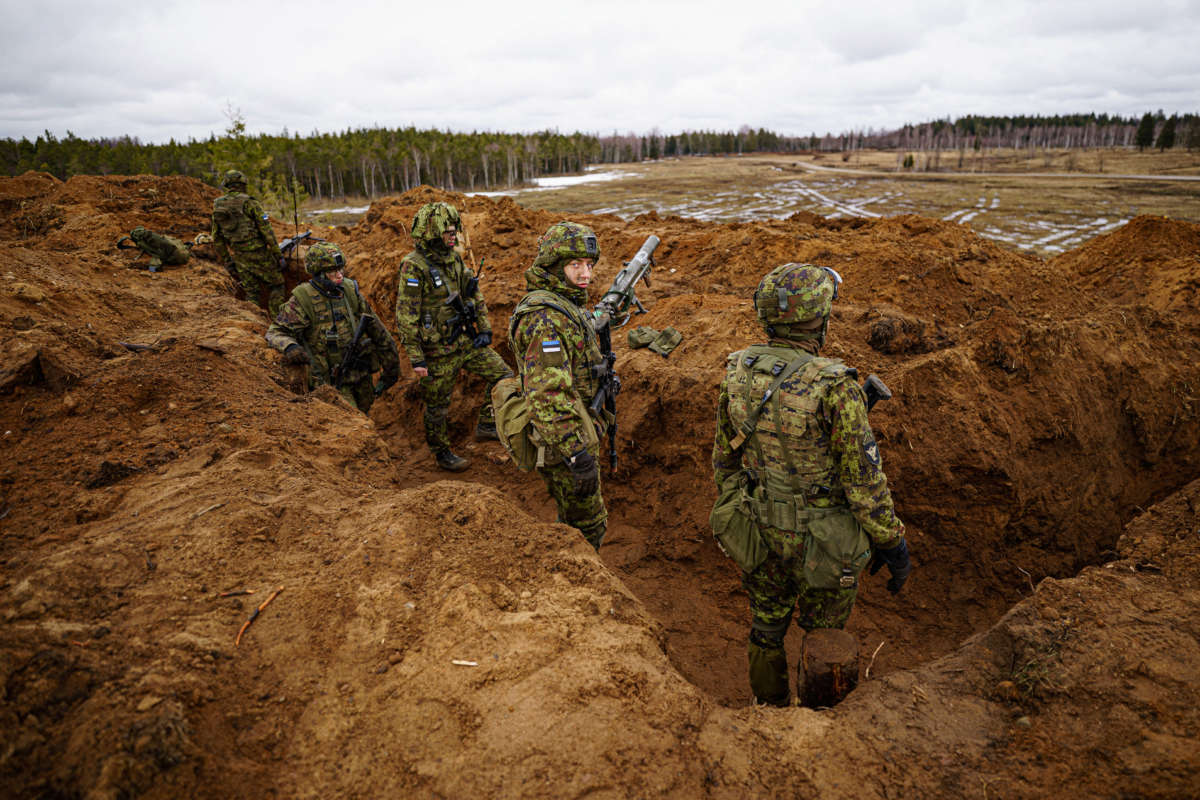The head of the North Atlantic Treaty Organization announced Monday that the military alliance will dramatically increase the ranks of its high-readiness forces from 40,000 at present to “well over 300,000” — a 650% boost — as Russia’s invasion of Ukraine rages on for the fifth consecutive month.
NATO Secretary-General Jens Stoltenberg painted the planned move, which alliance leaders are set to adopt during a summit in Madrid this week, as part of the 30-member organization’s efforts to bolster its defense of the Baltic nations, which have been clamoring for a “credible military construct… that will deter” Russian President Vladimir Putin.
“These troops will exercise together with home defense forces, and they will become familiar with local terrain facilities… so that that they can respond smoothly and swiftly to any emergency,” Stoltenberg said during a press conference on Monday.
“We will also boost our ability to reinforce in crisis and conflict,” he continued, “including with: more pre-positioned equipment, and stockpiles of military supplies; more forward-deployed capabilities, like air defense; strengthened command and control; and upgraded defense plans, with forces pre-assigned to defend specific allies.”
Stoltenberg characterized Russia as “the most direct and immediate threat” to the security of NATO, which is also weighing Finland and Sweden’s recent applications to join the military alliance.
Putin, for his part, has repeatedly cited NATO’s eastward expansion and the U.S.-led alliance’s positioning of troops and weaponry near Russia’s border as a danger to his country’s security, sparking fears that additional NATO troop mobilizations could further inflame tensions between Russia and the West as diplomatic efforts sputter.
“This is not the path to peace and will not make the world safer,” warned the U.K.-based Stop the War Coalition. “This will cause more death and destruction. We say no to NATO escalation as well as Russian troops out.”
Join us in defending the truth before it’s too late
The future of independent journalism is uncertain, and the consequences of losing it are too grave to ignore. To ensure Truthout remains safe, strong, and free, we need to raise $43,000 in the next 6 days. Every dollar raised goes directly toward the costs of producing news you can trust.
Please give what you can — because by supporting us with a tax-deductible donation, you’re not just preserving a source of news, you’re helping to safeguard what’s left of our democracy.
